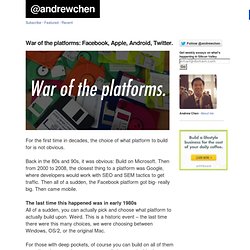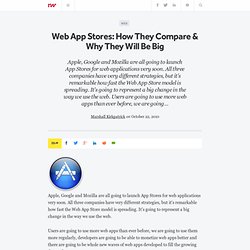

About distribution. Discovery is the problem in gaming. In 2009 I wrote a guest post at Industry Gamers about why social gaming is so attractive to investors, where I talked about the three key elements oin gaming: Development, Distribution and Discovery.

Basically, I compared circa 2009 social games to AAA games and said that they were cheaper to develop (a few months and a few hundred thousand dollars), distribution was virtually ubiquitous (since they could be played in browser versus bought in a store and played on a console or high end PC) and discovery was free through viral growth instead of driven through heavy marketing campaigns. I concluded that this dynamic, which allowed a startup to take multiple “shots on goal” with a venture capital investment, was what had brought renewed investor interest to gaming, an industry that had largely been financed by publishing deals. Much has changed since 2009, and browser (including social) and mobile games are the two hottest areas in gaming right now.
Cross promotion to an existing base. War of the platforms: Facebook, Apple, Android, Twitter. For the first time in decades, the choice of what platform to build for is not obvious.

Back in the 80s and 90s, it was obvious: Build on Microsoft. Then from 2000 to 2008, the closest thing to a platform was Google, where developers would work with SEO and SEM tactics to get traffic. Then all of a sudden, the Facebook platform got big- really big. Then came mobile. The last time this happened was in early 1980s All of a sudden, you can actually pick and choose what platform to actually build upon. For those with deep pockets, of course you can build on all of them – yet if you’re an early startup, you really have to double down on one and go multi-platform as you pick up traction. Evaluating platforms To evalute which platform is best, here are some thoughts: Which offers access to the most relevant users?
Apple Ultimately, I think distribution is where platforms really help.
Facebook platform. Windows 8. Android. Mac appstore. Chrome Web Store. Mozilla platform. Windows app store. Safari extension gallery. Ubuntu appstore. Android market. Getjar. Wordpress Appstore. Web App Stores: How They Compare & Why They Will Be Big - ReadWriteCloud. Apple, Google and Mozilla are all going to launch App Stores for web applications very soon.

All three companies have very different strategies, but it's remarkable how fast the Web App Store model is spreading. It's going to represent a big change in the way we use the web. Users are going to use more web apps than ever before, we are going to use them more regularly, developers are going to be able to monetize web apps better and there are going to be whole new waves of web apps developed to fill the growing demand. Above: The prototype Mozilla app manager The User Experience Why Web App Stores? Why not just bookmarks for web apps? IPhone owners have downloaded an average of 40 different apps each - many of us far more.
The App Store model is a much easier way for people to bring new software into their lives than anything else currently available online. We'll have one place to find, evaluate, acquire and access new web apps - we'll use more of them and more of them will be built.
Conduit. OpenCandy.